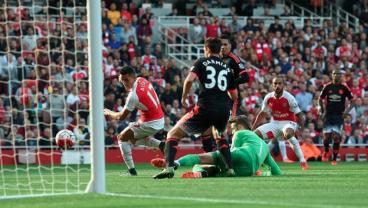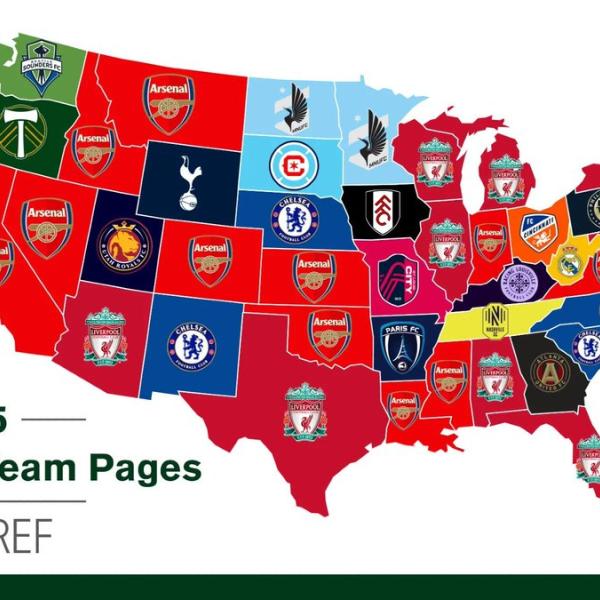2017 FIFA Confederations Cup Preview: Germany
History and Background
Like Gary Lineker once said, “Football is a simple game. Twenty-two men chase a ball for 90 minutes and at the end, the Germans always win.” It’s no surprise that Die Mannschaft are by far the most historically successful team at this tournament, having won four World Cups and three European Championships.
However, they’ve yet to ever win the Confederations Cup. Given the competitive makeup of the side, it’s expected that they’ll be hungry to add this elusive title to their collection.
Germany almost always makes it through to the latter stages in international play. In their last nine World Cup appearances, they’ve always made it to at least the quarterfinal stage, while actually winning the Cup twice. This means that the last time they failed to be a part of the last eight was at the 1978 World Cup, almost 40 years ago.
One would have to go back almost 80 years to find an occasion of the Germans getting knocked out in the group stage.
No team has won successfully defended their World Cup title since Pele and Brazil did it in 1958 and 1962. The Germans want to enter the history books as the third nation to ever do so, and they’re using this Confederations Cup as a testing ground for next summer. Joachim Low has decided to field youngsters to give his superstars a rest this summer, but he’ll also be hoping to find a few players who can add something to the final 2018 squad.
Coaching Overview
Low took the job back in 2006 after Jurgen Klinsmann resigned. Although he was a young and inexperienced manager — with the biggest sides he’d managed being VfB Stuttgart and Fenerbahce — the German Football Association put their full trust in him to continue Klinsmann’s work.
He continued to work with his former boss’ methods, building the team around younger players such as Bastian Schweinsteiger, Phillip Lahm, Per Mertesecker, Lukas Podolski and Mario Gomez. He repaid the faith put in him by leading the nation to the final of EURO 2008, narrowly losing out to Spain and finishing as the runners-up.
He kept bringing young, exciting talent into the national team set up, hoping to inject a faster flow to Germany’s game. With Jens Lehmann, Christoph Metzelder, Torsten Frings, Thomas Hitzlsperger, Kevin Kuranyi, Oliver Neuville and Tim Borowski no longer a part of Die Mannschaft for the 2010 World Cup, a host of changes were made to the starting eleven.
Manuel Neuer, Thomas Muller, Mesut Ozil, Sami Khedira, Toni Kroos and Jerome Boateng were just some of the players Low debuted after 2008, and they all started to become key players for the side. With a young squad, the Germans ran rampant against England and Argentina in the tournament, beating them 4-1 and 4-0.
The impressive Germans caught everybody’s attention, especially with their deadly counter attacks and lightening pace. However, they ran into the familiar foes Spain in the semifinals, and they couldn’t overcome the Spanish technique of possession football.
Another round of youngsters were added again by Low for EURO 2012, bringing in the likes of Marco Reus, Mario Gotze, Ilkay Gundogan, Marcel Schmelzer, Mats Hummels and Andre Schurrle. They were again very impressive, winning the first four games with victories over the likes of Portugal and the Netherlands.
However, they once again came up short in the semis, going down to a defensive Italian side. But Low held onto the job for the 2014 World Cup, which would prove to be an excellent decision from both parties.
He decided to build with continuity from the past two tournaments, instead of injecting another host of youngsters. His side finally overcame its previous failures in the knockout rounds, and they finally captured the World Cup — beating host nation Brazil 7-1 along the way.
But last summer in France they bowed out at the semifinal stage once again. So Low will use this tournament to give his usual starters a much needed summer vacation while bringing in many new players to test on the international stage.
Current Squad
Germany made wholesale changes to their squad, with only seven players from their EURO 2016 squad called in for this tournament. With many youngsters in the team, 23-year-old Julian Draxler has been handed the captaincy. Although the PSG man is still young, he has the most caps for the national team in this squad, having made 30 appearances since debuting in 2012.
Apart from Draxler, there are several other skillful players that can change the game instantly. RB Leipzig’s Timo Werner is one of them. The 21-year-old, who joined the eastern German club for €10 million last year, scored 21 goals in 31 Bundesliga appearances this past season. He was a major part of Leipzig’s spectacular run in the league and has alerted many big clubs across Europe with his performances.
There’s a lot of talent in each position for this German side, including Barcelona’s Marc-Andre Ter Stegen, Bayern Munich’s Joshua Kimmich and Niklas Sule, Borussia Dortmund’s Matthias Ginter, Hoffenheim’s Kerem Demirbay, Roma’s Antonio Rudiger and Schalke’s Leon Goretzka. Underestimating this German B or C team would be suicidal.
There’s some experience in this side as well. Defender Shkodran Mustafi was already a part of the national team at both the 2014 World Cup and EURO 2016. Having already played in all four of Europe’s biggest leagues at the tender age of 25, the Arsenal man has plenty of experience under his belt.
The same can be said about the striking pair of Sandro Wagner and Lars Stindl. Both are in the prime of their careers, and although they have only two caps each for Germany, a total of nearly 400 combined appearances in the Bundesliga means they know exactly what it feels like to play football at the highest level.
Prediction
Even with such a young squad, Germany remain the favorites for the tournament, and it’s easy to see why. However, even with a lot of individual qualities, it remains to be seen how they’ll perform as a unit. Low has gotten together a group of 23 players from 15 different clubs, which could somewhat halt their chemistry on the pitch.
This group has only played two games together before coming into this tournament. Although they ran rampant over tiny San Marino last weekend, they looked very average during a friendly against Denmark. If they can gel soon enough, they can go all the way to the final, but if they can’t, it won’t be a shock to see them getting knocked out at the group stage in this tournament’s decidedly more difficult Group B.
Matches
6/19 — Germany vs Australia
6/22 — Germany vs Chile
6/25 — Germany vs Cameroon

 Home
Home





